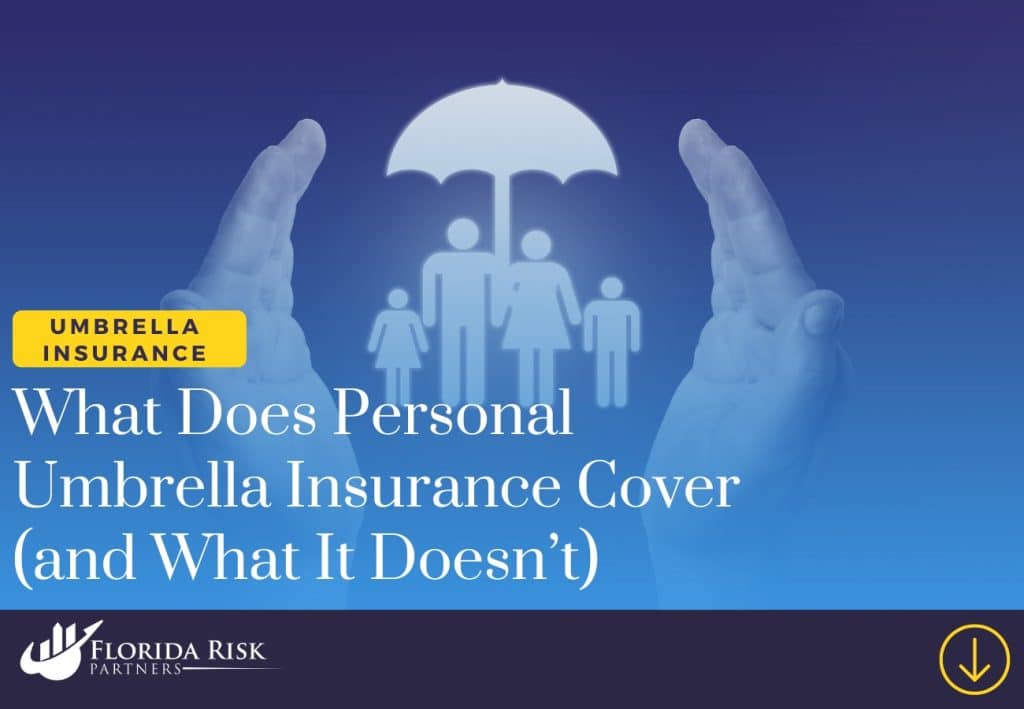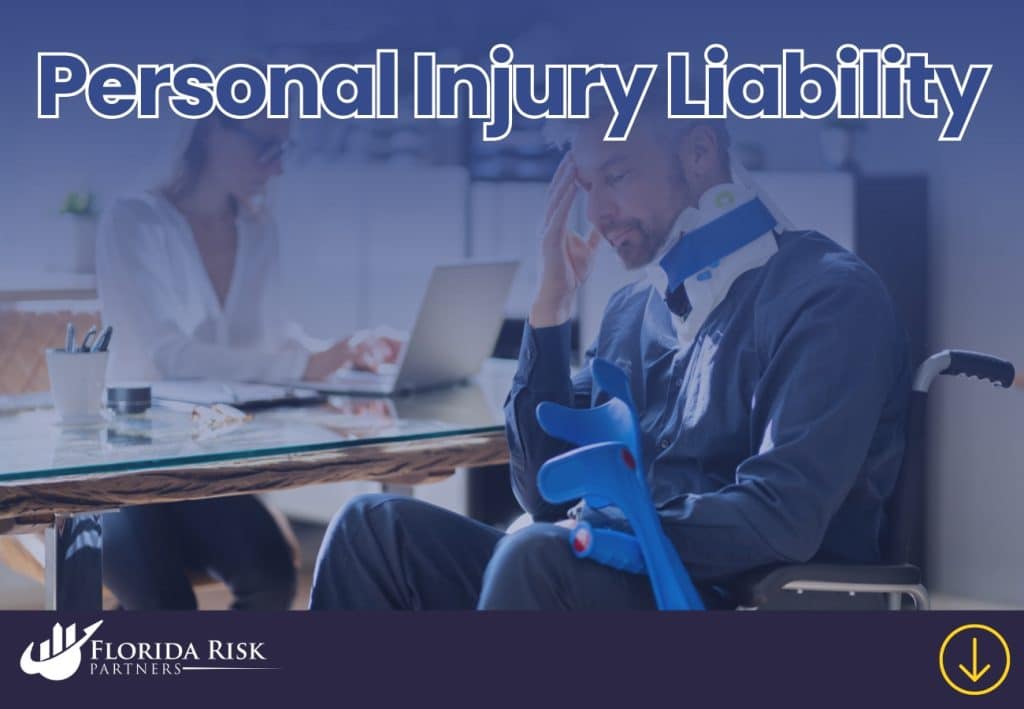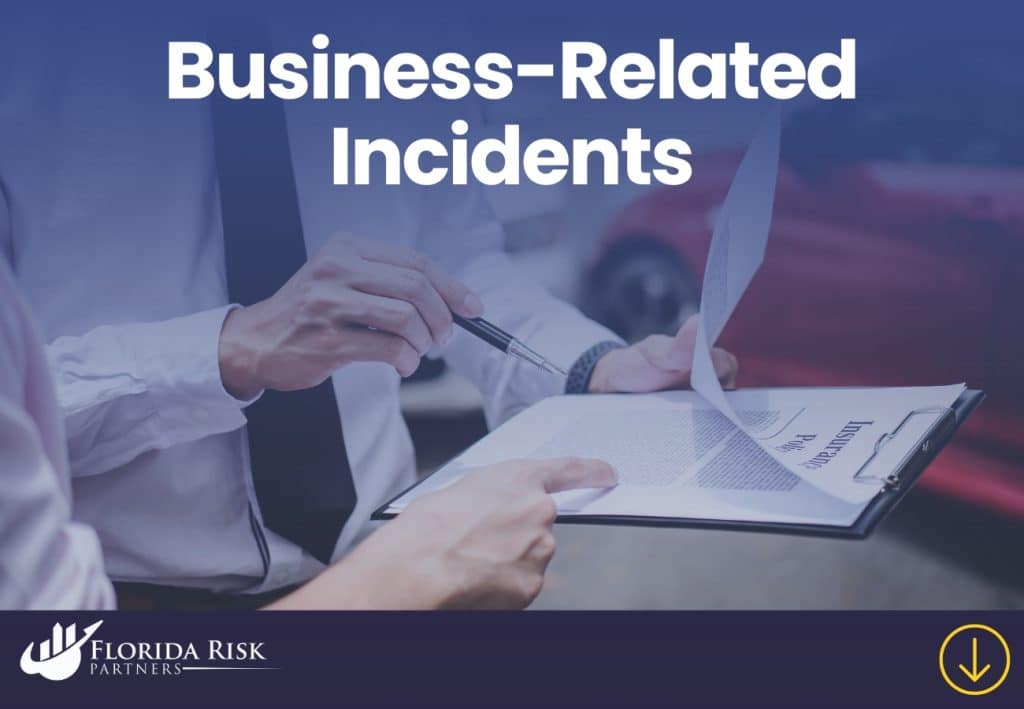-
Main Office: 1434 E. Bloomingdale Ave Valrico, FL 33596-6110
-
Phone: (888) 601-6660
-
Email: info@floridariskpartners.com

When it comes to protecting your financial future, personal umbrella insurance is one of the most effective ways to extend the liability coverage beyond what your standard policies, like homeowners or auto insurance, offer. Although many people recognize the need for basic insurance, they often overlook the importance of understanding exactly what umbrella insurance covers – and, equally important, what it doesn’t.
This post explores umbrella insurance coverage and common exclusions. You’ll understand its protection and limitations. Learn how it safeguards you in various situations and where coverage may not apply. By the end, you’ll make informed decisions about liability protection. Umbrella insurance offers clarity and confidence for managing risks.
What Does Personal Umbrella Insurance Cover?
Umbrella insurance is designed to provide an extra layer of liability protection that kicks in when the limits of your primary insurance policies, such as homeowners, auto, or renters insurance, are exhausted. It covers a range of incidents and claims that could otherwise place your personal finances at risk. Here’s an in-depth look at the types of coverage that personal umbrella insurance typically provides:
1. Bodily Injury Liability
What It Covers: Bodily injury liability covers expenses related to physical injuries sustained by another person for which you are legally responsible. This includes medical bills, rehabilitation costs, and even pain and suffering if someone is injured due to your actions.
Examples of Bodily Injury Coverage:
- Auto Accidents: If you are at fault in a car accident that results in serious injuries to other drivers or passengers, bodily injury coverage from your umbrella policy will cover the costs beyond your auto insurance limit.
- Injury on Your Property: If a guest is injured while visiting your home – for example, slipping on icy steps – and the medical costs exceed your homeowners insurance coverage, your umbrella policy would cover the remaining amount.
2. Property Damage Liability
What It Covers: Property damage liability covers the cost of repairs or replacement of someone else’s property that you damage. This type of liability can include damage to vehicles, homes, and other personal property.
Examples of Property Damage Coverage:
- Accidental Damage: Imagine you accidentally crash into someone’s fence while backing out of a driveway, causing damage that exceeds your auto insurance’s property damage limit. Your umbrella insurance would cover the additional repair costs.
- Damage to Rental Property: If you own rental property and a tenant sues you for property damage related to a maintenance issue, such as a burst pipe that ruins their belongings, umbrella insurance can cover damages that exceed your landlord policy’s limit.
3. Personal Injury Liability
What It Covers: In addition to physical injuries, personal umbrella insurance covers a range of non-physical injuries known as personal injury claims. This includes liability claims for defamation, slander, libel, invasion of privacy, and wrongful detention or arrest.
Examples of Personal Injury Coverage:
- Defamation or Slander: Suppose you post a comment online that another person interprets as defamatory, resulting in a lawsuit for damages to their reputation. Your umbrella insurance policy would cover legal fees, settlements, or court-awarded damages beyond the limits of your homeowners insurance.
- False Arrest or Wrongful Detention: In some cases, a misunderstanding could lead to someone pressing charges for wrongful detention or false arrest. If a claim is made against you, umbrella insurance can help cover legal costs and settlements that may arise from these allegations.

4. Legal Defense Costs
What It Covers: A lesser-known but significant benefit of umbrella insurance is that it covers legal defense costs. These costs can be substantial, even if a claim against you is ultimately found groundless or dismissed.
Examples of Legal Defense Coverage:
- Auto Accident Lawsuit: After a serious accident, you might be sued for damages that exceed your auto insurance policy’s limits. The legal costs for defending yourself in court can be high, but an umbrella policy will cover these fees.
- Lawsuits for Personal Injury Claims: If someone files a personal injury lawsuit against you for slander, defamation, or other non-physical harm, umbrella insurance will cover attorney fees, court costs, and other legal expenses.
5. Landlord Liability
What It Covers: Umbrella insurance extends liability coverage beyond landlord insurance for rental property owners. It provides additional protection against tenant and guest-related incidents. This coverage safeguards property owners from substantial liability claims. Extending liability ensures financial security in unexpected situations. This insurance is essential for rental property risk management.
Examples of Landlord Liability Coverage:
- Tenant Injury Claim: If a tenant’s guest sustains an injury on your rental property, they may decide to sue you for damages. Your landlord insurance will cover liability costs up to a certain limit, but umbrella insurance will step in if those costs exceed your primary coverage.
- Damage to Tenant’s Property: If a maintenance issue causes damage to a tenant’s personal property and they sue for the loss, umbrella insurance can cover costs that exceed your landlord policy’s limit.
6. Worldwide Coverage for Incidents Abroad
What It Covers: Many umbrella insurance policies extend coverage for incidents that occur outside the United States. This is particularly beneficial if you travel frequently or own property abroad, as it ensures you are protected globally.
Examples of Worldwide Coverage:
- Rental Car Accident Overseas: If you’re involved in an auto accident while driving a rental car in a foreign country and the liability exceeds the rental agency’s coverage, your umbrella insurance can cover the excess costs.
- Injury While Traveling: If someone is injured due to your actions while you’re traveling abroad, umbrella insurance will help cover the costs that go beyond your primary coverage.
Common Exclusions in Personal Umbrella Insurance
While personal umbrella insurance offers broad and valuable coverage, it’s important to understand that it does have limitations. Here are some of the most common exclusions found in umbrella insurance policies:
1. Intentional Acts
What It Doesn’t Cover: Umbrella insurance policies do not cover intentional acts of harm or damage. If you intentionally cause injury to someone or damage property, your umbrella policy will not provide coverage for the resulting claim.
Example of Exclusion:
- If you purposefully damage a neighbor’s property in a dispute, your umbrella insurance will not cover the repair or replacement costs.
2. Business-Related Incidents
What It Doesn’t Cover: Most personal umbrella policies exclude coverage for business-related incidents. If you operate a business from your home or own a separate business, you’ll need a commercial umbrella policy for liability coverage related to business activities.
Example of Exclusion:
- Suppose you operate a consulting business from your home and a client sues you for negligence related to your services. This claim would not be covered by this insurance, as it falls under business activity.

3. Certain Vehicles
What It Doesn’t Cover: Aircraft and some watercraft aren’t covered by umbrella insurance unless specifically added or insured separately.
Example of Exclusion:
- If you own a private airplane and it’s involved in an accident, any liability claims resulting from the accident would not be covered by your umbrella policy unless you’ve added specific aviation liability coverage.
4. Contractual Liability
What It Doesn’t Cover: Claims arising from contracts or agreements you enter into are usually excluded from umbrella insurance. If you sign a contract agreeing to be responsible for certain liabilities, any resulting claims would likely not be covered.
Example of Exclusion:
- If you sign a contract with a contractor to assume liability for certain damages and an accident occurs, your umbrella insurance may not cover the claim due to the contractual nature of the liability.
5. Workers’ Compensation Claims
What It Doesn’t Cover: Umbrella insurance does not cover claims related to workers’ compensation. If an employee is injured while working for you, such as a household staff member, you will need separate workers’ compensation insurance to cover those claims.
Example of Exclusion:
- If your nanny is injured on the job and files a workers’ compensation claim, this type of claim would not be covered by umbrella insurance.
Why Understanding Exclusions is Important
Being aware of the exclusions in your umbrella insurance policy is crucial to ensuring you have adequate protection. While umbrella insurance provides broad liability coverage, it’s not intended to cover every possible risk. By understanding these limitations, you can plan additional coverage or policies if necessary. For instance, if you own a business, considering a commercial umbrella policy can provide the business-related liability coverage that a personal umbrella policy does not.
Key Benefits of Personal Umbrella Insurance Despite Exclusions
Despite these exclusions, umbrella insurance remains one of the most valuable forms of additional liability coverage. Here are a few reasons why it’s worth considering:
Broad Protection at an Affordable Cost
For a relatively low premium, umbrella insurance offers high-value coverage that can protect you in major liability situations. With premiums starting around $150 to $500 per year for $1 million in coverage, umbrella insurance is an affordable way to add significant protection to your financial security.
Extensive Legal Defense Coverage
This insurance covers legal defense costs, even for meritless claims. It helps with attorney fees, court costs, and potential settlements. This reduces the risk of a significant financial burden. Its support ensures you’re protected from costly legal challenges.
Additional Coverage for Non-Physical Injuries
Umbrella insurance covers defamation, slander, and privacy claims, unlike standard homeowners and auto policies. It provides broad protection against various claims beyond physical injuries or property damage. This ensures financial security in situations excluded by primary insurance policies. Personal umbrella coverage adds an extra layer of essential protection for diverse risks.
Is Personal Umbrella Insurance Right for You?
Understanding this insurance coverage helps determine if it suits your needs. It complements primary policies, safeguarding financial futures. For significant assets or high earning potential, umbrella insurance adds crucial protection. It’s especially valuable for those facing higher liability risks. Consider umbrella insurance to enhance your financial security effectively.
For a more comprehensive understanding of personal umbrella insurance, including detailed scenarios and additional benefits, download our free e-book on umbrella insurance. This guide will provide you with in-depth insights and help you make informed decisions about protecting your finances.
[Download our Comprehensive Guide to Personal Umbrella]
By investing in this insurance, you’re taking a proactive step toward financial security. Knowing exactly what’s covered and what isn’t gives you peace of mind and confidence that you’re protected against unexpected, high-cost claims.
Call Us Or
Schedule an Appointment
Select an agent below to view our online calendars and select a day and time that works best for you or call us directly at 888-601-6660. When you use our online calendars, you will receive an email with more information.



